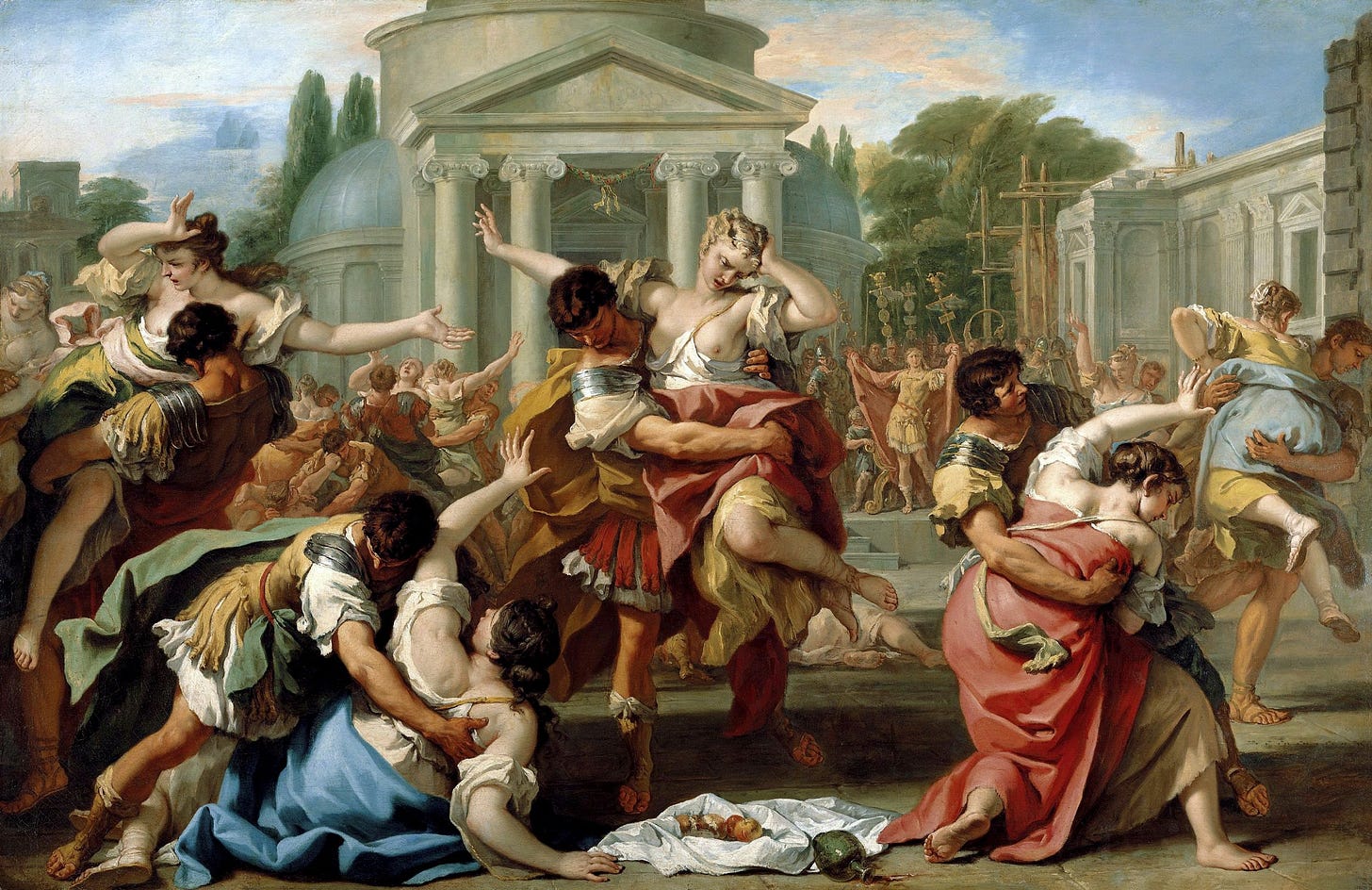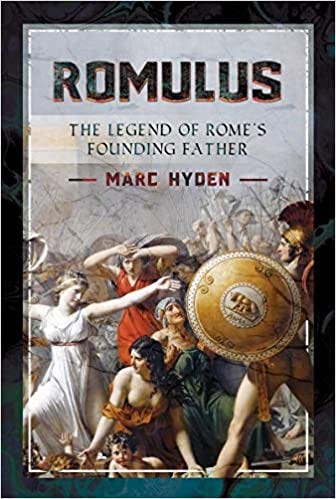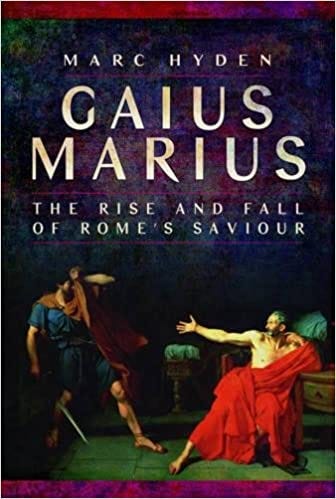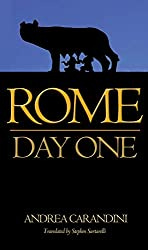Featured Episode - Digging Up Romulus: The Mythical Founder of Rome
Issue 19
In This Episode
In this episode, host, Petros Koutoupis, sits down with historical researcher and author, Marc Hyden. They discuss Marc’s latest book, Romulus: The Legend of Rome’s Founding Father. Is there any historical basis to the mythical founder of Rome and the Roman peoples? How did his story evolve over the centuries? What credible evidence is there to prove the existence of Romulus? Can we date the beginnings of the city to the time the ancient writers say? Tune in to find out.
You can listen to this episode on:
Glossary
Aeneas - A Trojan hero and the son of the Trojan prince Anchises and the Greek goddess Aphrodite (the Roman Venus).
Aeneid - A Latin epic poem written by Virgil in the second half of the first century BCE. It tells the tale of the legendary Aeneas fleeing Troy and traveling to Italy.
Akkadian - An East Semitic language spoken by an early Mesopotamian civilization starting around 2500 BCE.
Amulius - King of Alba Longa and brother to Numitor. The twin, Romulus and Remus were his grandnephews.
Anatolia - The region that is Turkey today.
Archaic Greece - A period in Greece starting at ca. 800 BCE and ending ca. 480 BCE.
Augustus - The first Roman Emperor who reigned from 27 BCE to the time of his death in 14 CE.
BCE - Before the Common Era, the equivalent of B.C.
Brutus of Troy - A legendary descendent of Aeneas, known in Medieval British literature and history. He is the eponymous founder and first king of Britain.
Bolsena Mirror - An Etruscan mirror depicting the she-wolf and the twins surrounded by human and animal figures. Its interpretation is still debated among scholars.
Etruria - A region once located in central Italy and what is Tuscany today.
Etruscans - An ancient civilization inhabiting ancient Etruria as early as 900 BCE. They were highly cultured and spoke a unique Etruscan language still largely undeciphered today. The Etruscans were competing with the Greeks and later Carthaginians for control over the Tyrrhenian region and until they were eventually absorbed into the Roman empire.
Faustulus - A shepherd who found Romulus and Remus abandoned along the River Tiber. He adopted the twins and raised them as his own.
Gilgamesh - An ancient Sumerian king and Mesopotamian hero. Many tales and an entire epic were written about him as early as the 3rd millennium BCE.
Hittite - An ancient civilization and empire that controlled most of the Anatolian mainland.
Lares - Hero ancestors and guardian deities in ancient Roman religion. Not much are known about them.
Linear A - The written language of the ancient Minoan civilization. It is made up of hundreds of signs that represent syllabic, ideographic and semantic values.
Linear B - An adaptation from the Minoan Linear A, it is made up of hundreds of signs that represent syllabic, ideographic and semantic values that represent an ancient dialect of the Greek language.
Luwian - A group of Anatolian peoples that lived in the central, western and southern regions of Anatolia during the Bronze and Iron ages.
Magna Graecia - Translating to “Greater Greece”, Magna Graecia was the name given to the southern Greek colonies on the Italian boot.
Mars - The Roman god of War (Greek Ares).
Minoan - An ancient civilization that inhabited (and dominated) the Aegean during the Bronze Age and just before the Mycenaean Greeks. Early archaeological evidence identifies the civilization as early as 3500 BCE.
Mycenaean - A phase or period of the Bronze Age Greece, spanning from approximately 1600-1100 BCE.
Neo-Assyrian - An ancient Mesopotamian civilization (ca. 911 - 609 BCE) originating from northern Mesopotamia and extending their empire across the entire Near East.
Neo-Babylonian - An ancient Mesopotamian civilization (ca. 626 - 539 BCE) originating from southern Mesopotamia and extending their empire across the entire Near East.
Numitor - Grandfather to the twins Romulus and Remus.
Remus - The twin brother of Romulus.
River Tiber - The river flowing in central Italy and just North of Rome.
Romulus - The mythical hero and founder of both the city of Rome and the Roman people.
Sumer - The oldest known civilization inhabiting the region of southern Mesopotamia between ca. 4500 - 1900 BCE.
Vesta - The Roman virgin goddess of the hearth, home and family.
Virgil - An ancient Roman poet (70 - 19 BCE) who is best known for his Latin works: the Eclogues (or Bucolics), the Georgics, and the epic Aeneid.
Zoroastrianism - An ancient Iranian religion based on the teachings of the prophet Zoroastor. Its roots trace back as early as the 2nd millennium BCE and its influence spread most during the height of the Persian Achaemenid era (550 - 330 BCE).
Recommended Books
Romulus: The Legend of Rome's Founding Father
By Marc Hyden
According to legend, Romulus was born to a Vestal Virgin and left for dead as an infant near the Tiber River. His life nearly ended as quickly as it began, but fate had other plans. A humble shepherd rescued the child and helped raise him into manhood. As Romulus grew older, he fearlessly engaged in a series of perilous adventures that ultimately culminated in Rome’s founding, and he became its fabled first king.
Establishing a new city had its price, and Romulus was forced to defend the nascent community. As he tirelessly safeguarded Rome, Romulus proved that he was a competent leader and talented general. Yet, he also harbored a dark side, which reared its head in many ways and tainted his legacy, but despite all of his misdeeds, redemption and subsequent triumphs were usually within his grasp. Indeed, he is an example of how greatness is sometimes born of disgrace.
Gaius Marius: The Rise and Fall of Rome's Saviour
By Marc Hyden
Gaius Marius was one of the most remarkable and significant figures of the late Roman Republic. At a time when power tended to be restricted to a clique of influential families, he rose from relatively humble origins to attain the top office of consul. He even went on to hold the post an unprecedented seven times. His political career flourished but was primarily built on military success. First serving in the Numantine War in Spain, he later rose to high command and brought a long-running war in North Africa to a successful conclusion, bringing the Numidian King Jurgurtha back in chains. His return was timely as northern barbarian tribes threatened Italy and had previously defeated several Roman armies. Marius reformed and retrained the Republic's forces and decisively defeated the invaders that had easily overpowered his predecessors.
Marius' subsequent career was primarily that of an elder statesman, but it was dominated by his rivalry with his erstwhile subordinate, Sulla, which ultimately led to the latter's bloody coup. Marius, once hailed as the savior of Rome, eventually became a desperate fugitive, literally fleeing for his life from his pursuers. However, after several harrowing brushes with death, Marius seized an opportunity to return to Rome and mete out justice to his enemies, which tarnished his once-enviable reputation.
Remus: A Roman Myth
By Timothy Peter Wiseman
This is an account of the foundation legend of Rome, how the twins Remus and Romulus were miraculously suckled by a she-wolf, and how Romulus founded Rome and Remus was killed at the moment of the foundation. What does the story mean? Why have a twin, if he has to be killed off? This is the first historical analysis of the origins and development of the myth, and it offers important insights into the nature of pre-imperial Rome and the ways in which myths could be created and elaborated in a nonliterate society.
Rome: Day One
By Andrea Carandini
Andrea Carandini's archaeological discoveries and controversial theories about ancient Rome have made international headlines over the past few decades. In this book, he presents his most important findings and ideas, including the argument that there really was a Romulus--a first king of Rome--who founded the city in the mid-eighth century BC, making it the world's first city-state, as well as its most influential. Rome: Day One makes a powerful and provocative case that Rome was established in a one-day ceremony, and that Rome's first day was also Western civilization's.








